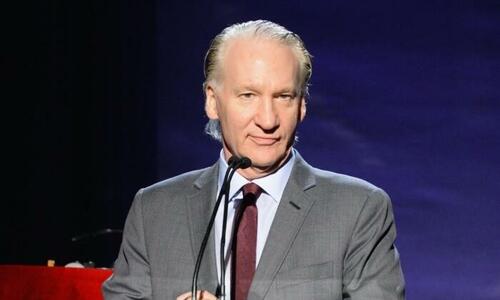Authored by Susan Harris via The Epoch Times,
In an era of polarized narratives, Donald Trump’s true character is often reduced to soundbites and crafted caricatures. That’s the Donald Trump comedian and political commentator Bill Maher thought he knew.
A lot of people didn’t think it would go well when Maher recently went to the White House to have dinner with President Trump, but they were proved wrong.
In an endearing yet hilarious monologue about the visit, Maher told how he had presented Trump with a list of names he’d called him. Maher read from that list, claiming that through the years, the president had described him as, “stupid, dummy, low-life dummy, sleazebag, and stone-cold crazy” among other colorful characterizations.
Maher, who has taken on the most controversial subjects through the years, has a reputation for dishing it out pretty hard himself. Vanity Fair described him as having “built his brand on provocation.”
Despite their shared histories for theatrics, the key takeaway from Maher’s monologue was that Trump gave him a “very generous amount of time and a willingness to listen and accept me as a possible friend.” It was clear that he was both impressed and humbled with the president and the graciousness he showed during their meeting.
Take, for example, the fact that it is often reported that Trump never laughs. Those of us who watched his rallies live—either in person or on the internet—knew this wasn’t the case. I can vouch for the fact that Trump often had his supporters laughing, and wasn’t afraid to laugh along. If you want footage of a long, hearty belly laugh, however, you’d be hard pressed to find that of anyone, let alone of a world leader.
Maher confirmed that he believed President Trump never laughed, saying, “Just for starters he never laughs. I’ve never seen him laugh in public. But he does, including at himself, and it’s not fake.”
Yet, beyond the headlines are the lesser-told accounts of personal kindness, acts of compassion, and a resilience that culminated in a defining moment of courage at a rally in Butler, Pennsylvania. These traits and actions reveal a man with a deep capacity for compassion and an old-school conviction that a leader should embody America’s strength.
In a recent interview with broadcaster Glenn Beck, Washington Examiner reporter Salena Zito revealed what she witnessed in Butler on July 13, 2024.
(Her upcoming book, “Butler: The Untold Story of the Near Assassination of Donald Trump and the Fight for America’s Heartland,” is already a pre-order bestseller on Amazon.)
Zito, who attended the rally with her daughter, had a front row seat to the events as they unfolded. She said that as Trump lay on the ground, shielded by the Secret Service, he began chanting, “USA, USA!” That was a moment few people saw or heard, and it was overshadowed by the now famous phrase, “Fight, fight, fight!”—words Trump gave the crowd with a raised fist as he was being led to safety.
President Trump knew Ms. Zito well—so well that he called her the morning after the assassination attempt to see if she and her daughter were OK.
By her own account, she responded with an expletive: “Are you ... kidding me? You’re the one that was shot, right?”
Zito said she and Trump spoke many times throughout that day, and she asked him why he reacted the way he did.
He responded:
“Well Selena, at that moment I wasn’t Donald Trump. I was symbolic. Even though I wasn’t president yet ... I had once been president. I had an obligation to show that the country is strong, that we will not be defeated, and that we are resolute. I did not want to be the symbol of America being weak.”
That statement was reminiscent of Trump at the height of the pandemic, when he himself tested positive for COVID. We remember a very sick president walking cooly from the White House to the helicopter that would take him to Walter Reed hospital. Later we found out he was sicker than we thought; the walk across the lawn was likely not an easy one.
Later, Trump left Walter Reed to wave at supporters gathering outside. The move was criticized by some, but most of us saw it for what it was—a show of strength for a country whose people desperately needed inspiration and hope.
Here in New York State, for instance, it was downright depressing to see American flags at half-mast throughout the pandemic. It gave the impression that we were all doomed and we might as well throw in the towel—COVID had won. Luckily, the only time President Trump ordered the flags lowered for pandemic victims was from May 22–24, 2020. It was reportedly done at the request of congressional democrats. Trump knew that strength begets strength.
Outside of the self-inflicted soundbites, hateful caricatures, and misleading media narratives, people like Bill Maher and Salena Zito continue to inform us of a president who possesses warmth, an openness to making amends, and the kind of Churchillian fortitude every leader should possess—but rarely does.
* * *
Views expressed in this article are opinions of the author and do not necessarily reflect the views of The Epoch Times or ZeroHedge.
Loading...
